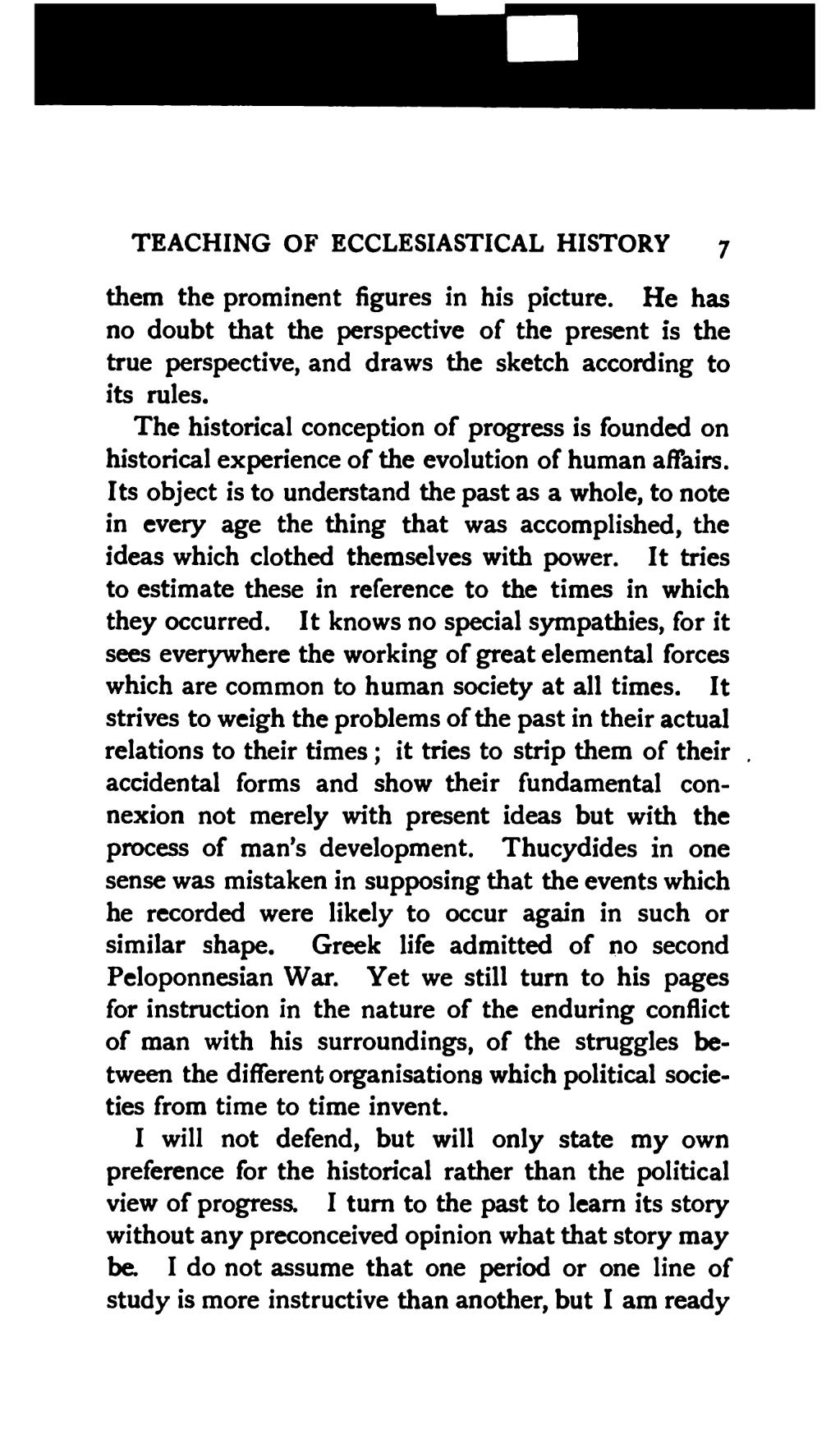them the prominent figures in his picture. He has no doubt that the perspective of the present is the true perspective, and draws the sketch according to its rules.
The historical conception of progress is founded on historical experience of the evolution of human affairs. Its object is to understand the past as a whole, to note in every age the thing that was accomplished, the ideas which clothed themselves with power. It tries to estimate these in reference to the times in which they occurred. It knows no special sympathies, for it sees everywhere the working of great elemental forces which are common to human society at all times. It strives to weigh the problems of the past in their actual relations to their times; it tries to strip them of their accidental forms and show their fundamental connexion not merely with present ideas but with the process of man's development. Thucydides in one sense was mistaken in supposing that the events which he recorded were likely to occur again in such or similar shape. Greek life admitted of no second Peloponnesian War. Yet we still turn to his pages for instruction in the nature of the enduring conflict of man with his surroundings, of the struggles between the different organisations which political societies from time to time invent.
I will not defend, but will only state my own preference for the historical rather than the political view of progress. I turn to the past to learn its story without any preconceived opinion what that story may be. I do not assume that one period or one line of study is more instructive than another, but I am ready
